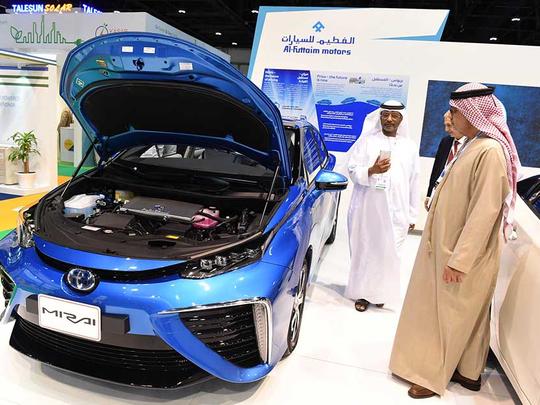
Abu Dhabi: Companies and governments need to collectively double — at least — their investments into clean energy and energy efficiency in order to achieve the targets of the Paris Agreement on cutting greenhouse emissions.
The Paris Agreement, which was drafted in December 2015, aims to reduce greenhouse gas emissions and limit the rise in global average temperatures to around two degrees Celsius.
“Today, the entire budget of the energy sector — oil, gas, coal, renewables — is $1.8 trillion, meaning the energy sector every year puts $1.8 trillion on the table. Out of that money, I’m sorry to say that only 16 per cent goes to renewables and energy efficiency; the rest goes mainly to oil and gas, and other energy sources. If you want to reach the targets, we need to at least double the efforts every year,” said Dr Fatih Birol, executive director at the International Energy Agency (IEA).
Estimates point that the global investments into clean energy are at about $300 billion.
Speaking on Monday at the World Future Energy Summit in Abu Dhabi, Birol said investing in renewables alone was not enough to bring nations closer to their energy targets. He said governments need to also consider curbing energy consumption and curbing energy subsidies, which tend to promote energy waste.
“We need other energy sources. For example, another zero-emission technology, nuclear power, can also play a role to address our climate goals, or other technologies — clean-coal technologies, natural gas — can all help … I believe a holistic approach is very much needed,” Birol said.
Also speaking on the same panel to discuss energy mix transformation was Piyush Goyal, India’s Minister of State with Independent Charge for Power, Coal, New and Renewable Energy, who reiterated the country’s plans to energy sustainability.
Asked what the incoming US administration’s potential energy policies might mean for climate change and for other countries’ policies, Goyal said India would continue to support renewable energy regardless of US energy policies.
“India’s commitment to the fight against climate change and its commitment to supporting renewable energy is an article of faith; it’s not something we’re doing because somebody else tells us to do it. Irrespective of what other countries do or do not do, India stands committed to clean energy,” he said.
The new US administration, led by President Elect Donald Trump, has led many to question the impact it will have on clean energy strategies, with Trump having called global warming “a hoax.” Trump’s Secretary of State pick, Rex Tillerson, former chairman and chief executive officer of ExxonMobil, also caused concerns on the new administration’s environmental policies.












